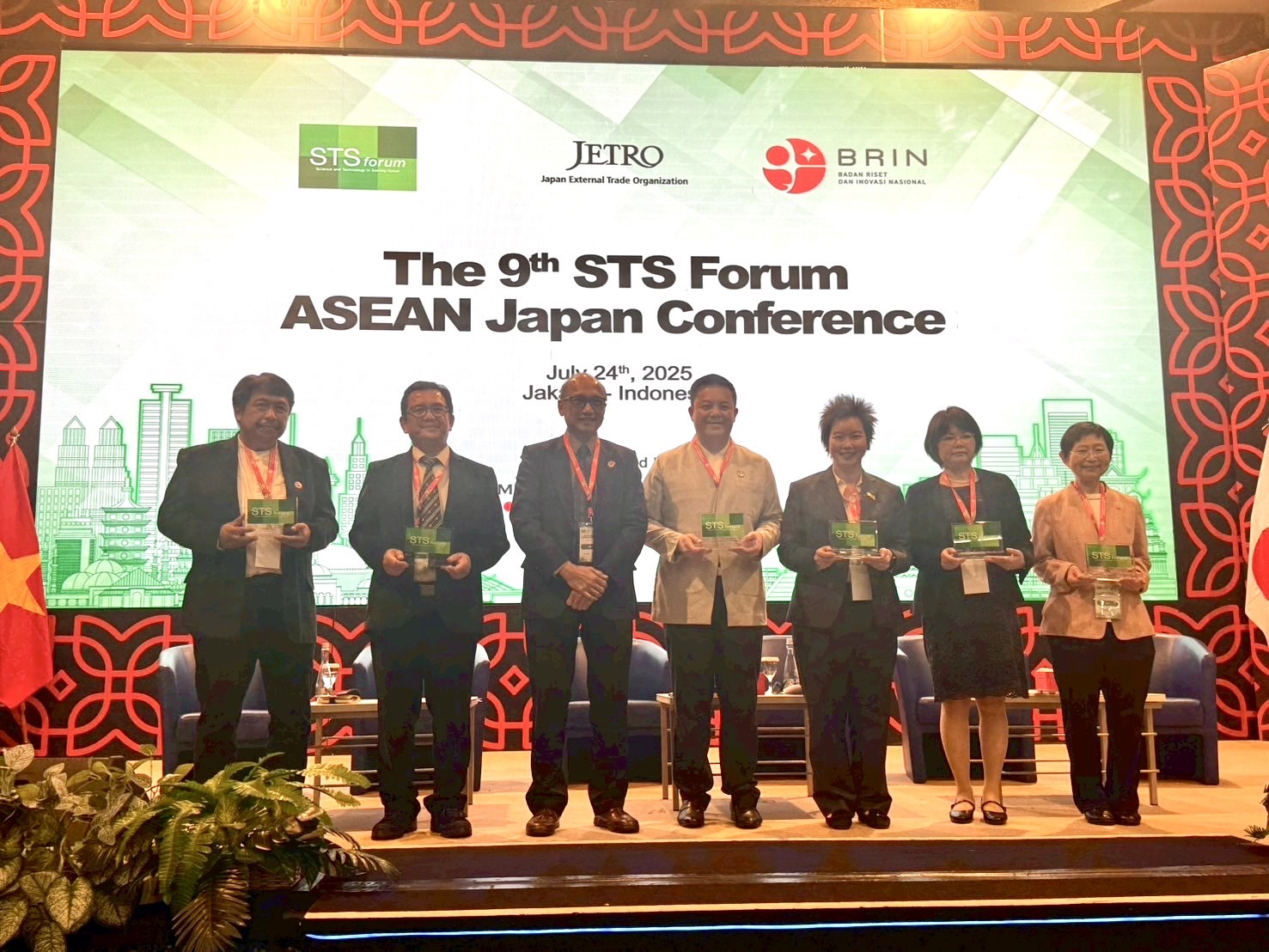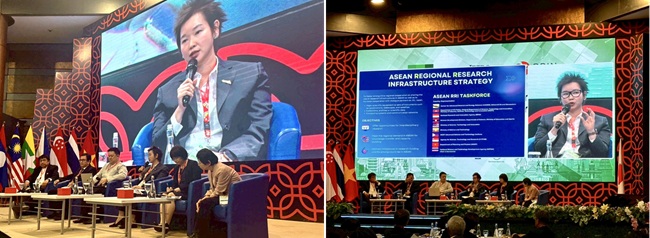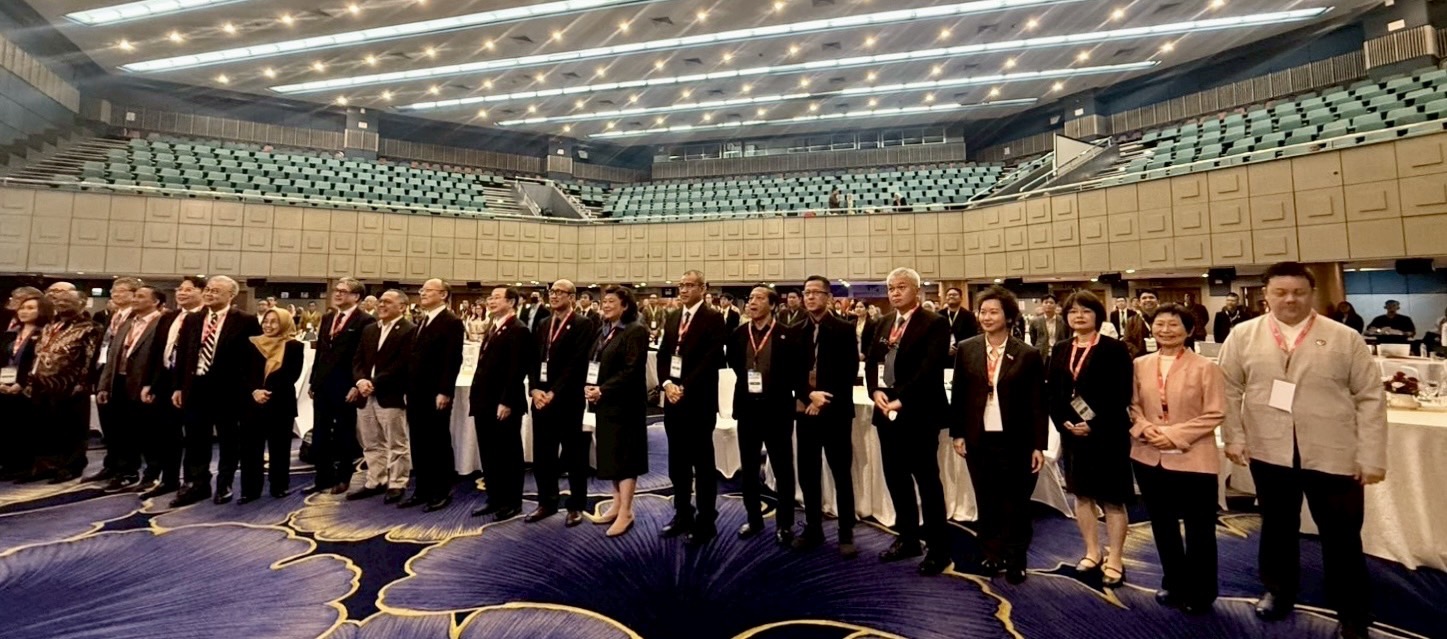Dr. Uracha Ruktanonchai, Executive Director of the National Nanotechnology Center (NANOTEC), National Science and Technology Development Agency (NSTDA), Thailand, participated as a distinguished speaker in the session on “Advancing Strategic Collaboration in Interdisciplinary Research Areas for Regional Development” during the 9th STS Forum ASEAN-Japan Workshop, held on 24 July 2025 at the Sumitro Djojohadikusumo Auditorium, BRIN BJ Habibie Building Office, Jakarta, Indonesia.

Representing NSTDA’s ongoing commitment to regional innovation and inclusive development, Dr. Uracha shared key strategies and initiatives Thailand is leading to strengthen scientific collaboration across ASEAN. She emphasized that NSTDA plays a central role in driving Thailand’s innovation-based economy, supporting the advancement of critical sectors through research and technology, and expanding regional partnerships to address shared development challenges.
One of the major highlights was NSTDA’s leadership in establishing the ASEAN Network on Bio-Circular-Green (BCG) Economy. This network connects research institutions across ASEAN to promote joint research, researcher development, and sustainable innovation. In addition, Dr. Uracha introduced the ASEAN Regional Research Infrastructure (RRI) Strategy, co-led by Thailand’s Ministry of Higher Education, Science, Research and Innovation (MHESI) and NSTDA. The RRI Strategy aims to establish a world-class, accessible research ecosystem in ASEAN through coordinated infrastructure mapping, shared governance, and cross-border cooperation. Key components include the development of an ASEAN research facility e-catalogue, harmonized operational standards, and joint investment strategies to promote sustainability and regional excellence.

Dr. Uracha stressed the importance of building interoperable digital platforms, standardizing quality assurance, and enhancing public-private partnerships to make technology and research infrastructure more inclusive. By doing so, ASEAN can enable not only scientists but also startups, MSMEs, and local communities to fully participate in innovation-led growth.
During the panel discussion, Dr. Uracha was invited to share her perspective on how interdisciplinary research, innovation, and social sciences can help build resilient, smart cities. She highlighted that resilience is not only about advanced technologies, but about designing systems that truly serve human needs.
She cited Thailand’s Traffy Fondue platform—an AI-powered civic engagement tool—as a successful case of interdisciplinary innovation. Combining data science, AI, engineering, public administration, and behavioral science, the platform allows citizens to report public issues directly via LINE chat. The system automatically categorizes reports, forwards them to relevant agencies, and even suggests polite responses. As a result, cities like Bangkok saw response times drop from three months to just one day—a 117-fold improvement. With over 630,000 users across 25 provinces, the platform exemplifies how collaborative, people-centered design can build trust, responsiveness, and urban resilience.
Dr. Uracha emphasized that building smart, resilient cities requires engineers, urban planners, and social scientists working together to design inclusive systems—not just efficient ones. Interdisciplinary approaches ensure that innovations are not only technically sound, but socially meaningful.
NSTDA reaffirmed its dedication to promoting inclusive research and development across ASEAN—aiming to foster resilience, prosperity, and sustainability through shared vision and strategic collaboration.

The STS Forum, established in 2004, provides a global platform for leaders in science and technology to discuss pressing societal challenges and foster international collaboration. Its annual meeting in Kyoto, Japan, has become a central event for dialogue among global stakeholders in science, technology, and innovation. The ASEAN-Japan regional workshop continues this tradition by deepening regional ties and advancing shared solutions through scientific exchange.
